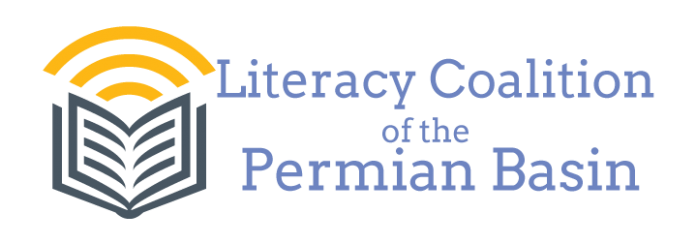Literacy Coalition of the Permian Basin will host a literacy summit from 10 a.m. to 2 p.m. Tuesday at the Ward County Event Center in Monahans.
LCPB in partnership with the Abell-Hanger Foundation, FMH Foundation, Prentice Farrar & Alline Ford Brown Foundation and the Permian Strategic Partnership is inviting literacy stakeholders in the community to join this first annual Permian Basin Literacy Summit.
At the summit, LCPB and partner agencies will reveal the findings of the first-of-its-kind literacy study performed in the Permian Basin, a press release stated.
The study includes interviews with higher education providers, school districts, adult literacy providers, and adult learners. The most up-to-date research findings on low literacy and its effect on families and our economy will be addressed, the release said.
Steve Banta, President of Literacy Texas, Mark Palmer, Chairman Literacy Coalition of the Permian Basin, Courtney Wardlaw, XTO Energy, Andrea Messick from Midland ISD and State Rep. Brooks Landgraf, R-Odessa, will be on hand.
Introductions will be made by Executive Director of the Literacy Coalition John Trischitti III, who also is an MISD board member, and Mark Palmer is the chairman of the coalition board.
Letticia Martinez, program and development coordinator, said presentation of the data will come from Trent Sharp from the American Institutes for Research.
“They are the ones that performed a lot of the studies with providers of services, along with some adult learners, ISDs and higher ed. There’s been a whole lot of research that’s been conducted locally,” Martinez said.
The Literacy Coalition of the Permian Basin was formed in July 2021.
“What they found was that not only is there not enough data on literacy, there’s not anything locally for data so they commissioned a study to get local data,” Martinez said.
The organization covers a 22-county service area that includes three counties in Eastern New Mexico and 19 in the Permian Basin, West Texas and the Trans-Pecos.
Martinez said what was found during the pandemic is that “huge percentages of adults … lack the ability to read even above a third-grade level. This was coming from potential employers, educators and people that provide services to these adults.”
“… It affects each and every one of us in one way or another, whether that means we get our prescription from the doctor and we can’t read how we’re supposed to take it so it affects their health. (Or) if someone can’t read a road sign and they hit a bridge, for example, that impacts all of us,” Martinez said.
“People that are in poverty have a lower percentage of literacy, as well as those that are incarcerated. …,” she added.
It also affects potential employers and employees if someone can’t fill out a job application or they don’t have a high school diploma or equivalency and can’t be promoted.
The summit will pull together stakeholders that have a vested interest in literacy rates, Martinez said.
According to the Barbara Bush Foundation, Texas ranks 48 out of 50 in terms of literacy and New Mexico is at 47.
“So we’re both in similar situations in terms of the need to improve,” Martinez said. “Then you start to see other factors that come into play like the fact that a lot of this area is rural and the fact that accessibility is an issue because there aren’t very many providers, and in some counties there are no providers.”
She said the coalition is not necessarily there to provide the class, but to increase capacity for existing programs or find providers that can provide the classes where there are no providers.




